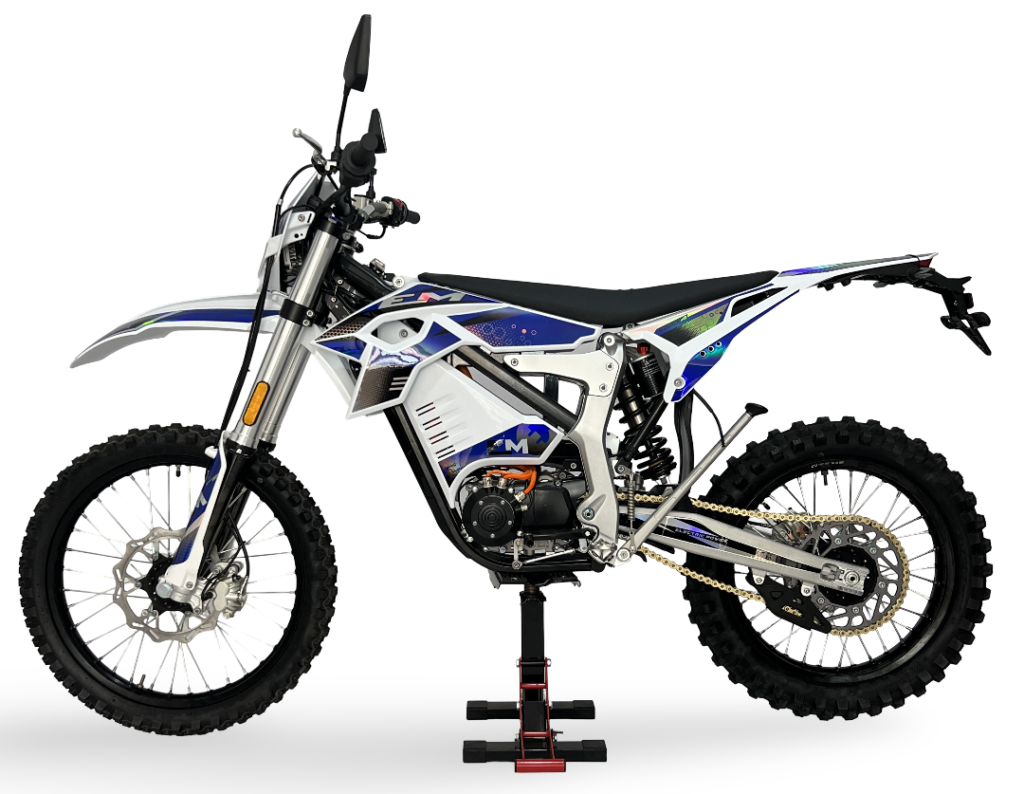
You may ask: Are Electric Dirt Bikes a good choice?
Alright, so I’m trying to figure out whether electric dirt bikes are a good choice. First off, what exactly is an electric dirt bike? From what I know, it’s similar to a dirt bike but powered by electricity instead of combustion engines like gas or diesel. That sounds interesting because dirt bikes are typically used for off-road riding, which can be rough and unpredictable.
Okay, so one thing to consider is safety. Dirt bikes themselves aren’t known for being the safest vehicles; they’re often seen as risky because of their agility on different surfaces. If we switch them to electric versions, does that make them any safer? I’m not sure. Maybe having an electric motor could help with acceleration or handling, but does it inherently improve safety?
Then there’s the environmental impact. Dirt bikes probably generate a lot of emissions when running on gasoline. Switching to an electric bike would reduce those emissions, which is good for the environment. But what about the energy consumption? If it’s using electricity from the grid, that should be cleaner than gasoline. However, I’m not sure how efficient these electric dirt bikes are in terms of energy use and battery life.
Cost is another big factor. Electric vehicles can be expensive upfront, especially if you’re getting a high-performance model with all the features. Maintaining them might also be different from regular dirt bikes since they don’t have engines that need routine service. But maybe they require other maintenance like charging infrastructure or ensuring they work well on public roads.
Maintenance and repairs: If an electric dirt bike doesn’t have internal combustion, does it mean it’s less likely to develop engine issues? Or are there other potential problems with the electrical system? I’m not sure. It would probably need regular checks for battery health and any electrical components that could fail over time.
On-road versus off-road use: Regular dirt bikes are great for off-road trails but aren’t designed for paved roads. Electric dirt bikes might be classified differently, possibly as street-legal vehicles. Does that mean they can be used on public roads? Or is there a difference in how they’re regulated?
Regulatory issues could also play a role. Different places have different rules about what’s allowed on public roads or trails. If electric dirt bikes are considered high-performance motorcycles under local laws, that might not be ideal for someone who wants to ride on more controlled roads.
Durability and longevity: Electric dirt bikes probably last longer than their gasoline-powered counterparts because they don’t burn fuel. But I’m not sure about the lifespan of the battery or any other components like the motor or frame.
Long-term costs: Even if electric dirt bikes are initially expensive, maybe over time they save money on maintenance and fuel costs. Or perhaps there’s an upfront cost that’s offset by lower ongoing expenses. It would be good to compare the total cost of ownership over a few years.
Technology advancements might also influence this choice. If electric dirt bikes become more advanced with better safety features or longer续航能力, it could make them a better option in the long run.
But then there’s the aspect of getting used to riding something different from what you’re used to with dirt bikes. Electric dirt bikes have that modern feel and might be less familiar to someone who only knows dirt bikes as gas-powered machines.
Also, finding an electric dirt bike locally could be a challenge if they aren’t widely available in your area. That could affect availability and maybe even the types of models available.
I also wonder about the environmental impact beyond emissions; for example, the energy required to manufacture and transport these bikes versus the energy saved by reducing gasoline use.
Another point is accessibility. If you’re not tech-savvy, setting up an electric dirt bike or maintaining it could be a bit more complex than regular dirt bikes. Or maybe they come with user-friendly interfaces that make them easier to operate.
Lastly, personal preference and lifestyle play a role. Some people might prefer the thrill of a fast, powerful dirt bike, while others might find electric versions more comfortable or reliable for their riding style.
So, in summary, considering safety, environmental impact, cost, maintenance, road use regulations, durability, long-term costs, technology advancements, familiarity with the vehicle, availability locally, overall environmental impact beyond emissions, accessibility, and personal preferences would help determine if electric dirt bikes are a good choice.




